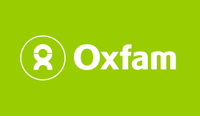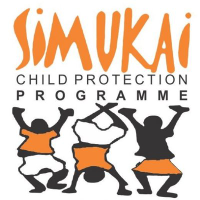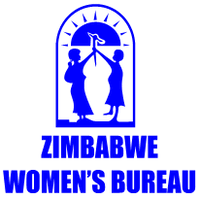TERMS OF REFERENCE BASELINE RESEARCH CONSULTANT Restore, protect and conserve natural resources and improve the productivity of women farmers' living in rural communities
Job Description
Location: Mutoko
Apply to: [email protected] / [email protected]
Application deadline: 14 March 2024
BACKGROUND AND DESCRIPTION OF PROJECT
Mutoko is a district of Mashonaland East Province, located in the eastern part of Zimbabwe, and covers 4,092.5 square km (1,580 m2). The district has a population of 124,013 of which more than 52 % are females. Mutoko has a sub-tropical climate with mean annual rainfall of 650-700 mm, making it generally a drier area. Studies have also confirmed that from 1980, the timing and amounts of rainfall in the district have become highly variable, with droughts and heavy precipitation occurring in the same rainfall seasons. Between 1990 and 1993, precipitation in Mutoko district declined by 1% (Simba et al. 2012). These climatic changes are having a huge impact on the yields that farmers in the district are realising.
In Zimbabwe, rural women are the backbone of agricultural labour as smallholder farmers and casual labourers. According to the National Gender Profile of Agriculture rural women constitute about 70% of household labour including in agriculture. Gender-based inequalities, structural barriers and discriminatory social norms make women more vulnerable than males. Rural women rely on natural resources for firewood, building materials, food and medicines resulting in deforestation and a shortage of natural resources. They walk for long distances carrying water and firewood, further constraining women’s time and increasing unpaid care work. Women farmers struggle with lack of loans due to high collateral and the distances travelled to access financial services. They also lack of clean water for human beings and livestock. Further-more rural women farmers lack access and ownership of land although they are the main source of agriculture labour. Because of community patriarchal, cultural and religious tendencies that put man ahead of the woman, women farmers also lake decision making power on crops to grow, selling of the produce and use of the money after selling.The challenges mentioned are also amplified by the lack of relevant knowledge by women on climate change and regenerative agricultural practices, where and how to access financial services among others. The negative impacts of climate change on land include depleting natural resources, disrupting water cycles, declining biodiversity, and spreading diet-induced diseases. Evidence suggests that within agriculture, women are disproportionately affected by the threats and shocks posed by climate change, especially in developing countries (Paavola & Neil 2016). Extreme climate change events such as rainfall variability, droughts, heavy rainfall, flooding, water scarcity, catastrophic storms and declining biodiversity have a negative impact on food production and supply. Average and seasonal maximum temperatures continue to pose a threat to crops, wildlife and freshwater supplies. Higher carbon dioxide levels can affect crop yields. Reduced women’s lack of relevant knowledge while heat stress increases the vulnerability of livestock to disease, reduces fertility, and reduces milk production. The lack of such information leaves women disadvantaged and having little knowledge to develop and improve their way of living. It is important to continue finding ways to support women’s agricultural activities that will overcome the gender gap in productivity and promote gender equality for the benefit of communities and societies while understanding the critical role of women in the mitigation and adaptation of climate change. The interventions will be implemented in Mutoko district which is being affected by climatic shocks of periodic heat waves and sometimes affected by serious winds that can blow out houses. It is a district in Mashonaland East province in the eastern part of Zimbabwe. Its primary activity is agriculture. ZWB has identified the challenges mentioned above because it implemented a climate change-focused project in Mutoko.
In sync with the social and environmental nature of the problem identified the funding will thus be used to implement project interventions that increases the capacity of these marginalised smallholder women farmers to self-organise and mobilise their agencies to take collective action for building resilience to the impacts of climate change. Emphasis will be on capacity building for leadership and implementation of climate smart agro-ecological farming technologies intertwined with other environmentally friendly livelihoods diversification options.
ZWB carried out the sustainable agriculture and livelihoods diversification program, targeting 150 smallholder women farmers in Mutoko district. The target women farmers were those who were already engaged in small scale market (vegetables) gardening. The gardens are a source of food for self-consumption and income generation, making them a key livelihood strategy for most women households in the district. ZWB is now intending to take these women a step further by promoting regenerative Agriculture through the “Restore, protect and conserve natural resources and improve the productivity of women farmers' livingin rural communities’ project”
Project Goals, Aims & Objectives
The proposed project’s goal is to support increased capacity, agency and resilience of smallholder women farmers in Mutoko district to cope with the social justice and climate change challenges that they face. To achieve this the project has 3 specific objectives.
• Increased knowledge in Climate Smart Agriculture for 100 women in Mukoko District
• Improved alternative livelihoods and energy sources for 100 women.
• Amplified women’s voices for 100 women in climate change, land rights and energy discourse in Mutoko District
Duties and Responsibilities
TASK DESCRIPTION
ZWB seeks a research consultant who has significant, demonstrated experience in conducting quantitative and qualitative research, especially smaller-scale research projects. The selected consultant will be responsible for contributing to and submitting the research tools for ethical review; conducting the formative research and conducting the baseline research (quantitative and qualitative data collection). The consultant is also expected to produce monitoring tools for the ZWB team to be using to collect data during project implementation for use during and after the project ended.
RESPONSIBILITIES OF CONSULTANT
ZWB will provide the protocol guides for all categories of respondents. The ability of the research consultant to contribute to the protocol and tools, including the translation of the tools and modifications based on local knowledge, is highly desirable.
· Help ensure appropriate wording and translation of the quantitative survey and associated tools, including screening materials.
·
· The research consultant will facilitate submission of all relevant materials for local ethical approval.
· The consultant will be responsible for all costs associated with the field team activities, including but not limited to allowances, recruitment and training costs, per diems, transport, materials and equipment. In addition to adequate time for data collection, the consultant will include time prior to the start of data collection for training of the field teams (with technical support and participation from ZWB) and pretesting of the tools.
· Lead or co-lead the training of data collection teams, to include developing relevant training materials, facilitating the training sessions and pretesting the tools.
· Implement formative research and baseline data collection (quantitative and qualitative methods) and liaise with ZWB team. The research consultant will be responsible for all other activities and costs related to quality data collection. Specifically, the consultant will supervise fieldwork, data collection, and data management and assume responsibility for quality control. The consultant will provide regular feedback to ZWB during the data collection process.
· Notifying ZWB of any problems occurring during data collection including any difficulties implementing certain questions.
· Data cleaning, identification and documentation of errors, missing data, and inconsistences, and the correction of these issues where possible.
· Record and transcribe all qualitative data collection events, and translate into English.
· Contribute to analysis and the writing of final deliverables.
Designing monitoring tools for the project.
REPORTING REQUIREMENTS AND DELIVERABLES
· Field report in English describing the training, field-testing and data collection process and basic characteristics of the sample/data collected; and the revised/final data collection tools.
· The raw and cleaned quantitative data set in KOBO.
· Verbatim transcripts in English of all FGDs and KIIs.
· Input into the final written reports.
• M&E tools for monitoring
Interested Organizations/Individuals are asked to submit a proposal that includes:
· A technical narrative no longer than 4 pages describing how they will accomplish the tasks described above.
· A detailed budget with budget notes.
· Brief paragraph summaries of 3-4 examples of similar data collection work conducted with the past two (2) years. The summaries should include descriptions of the past efforts, covering the scale of data collection, the methods used, experience with digital data collection tools, field strategy (including interviewer/researcher recruitment, team structure, quality control systems, etc.), data management approach, quality control systems, etc.
· 2-3 references that may be contacted regarding the quality of the organization’s work
Qualifications and Experience
Interested Organizations/Individuals are asked to submit a proposal that includes:
· A technical narrative no longer than 4 pages describing how they will accomplish the tasks described above.
· A detailed budget with budget notes.
· Brief paragraph summaries of 3-4 examples of similar data collection work conducted with the past two (2) years. The summaries should include descriptions of the past efforts, covering the scale of data collection, the methods used, experience with digital data collection tools, field strategy (including interviewer/researcher recruitment, team structure, quality control systems, etc.), data management approach, quality control systems, etc.
· 2-3 references that may be contacted regarding the quality of the organization’s work
Required Skills:
· Master’s degree in a related field (sociology, environment, Agriculture, gender, international development or other social science) required.
· Contractors must demonstrate significant experience (at least 3 years) with both quantitative and qualitative research design, implementation, analysis and reporting.
· Significant facilitation and interviewing skills.
· Significant experience in conducting surveys.
· Demonstrated experience conducting research on sensitive topic areas related to gender based violence.
· Fluency in English and Shona.
How to Apply
Apply to: [email protected] / [email protected]
Similar Listings

Baseline Assessment for the project, “Integrated Emergency Response for El Niño Drought Affected Communities in Zimbabwe,
Oxfam — Harare

Terms Of Reference
Oxfam — Harare

Terms Of Reference
Oxfam — Harare

CALL FOR EXPRESSION OF INTEREST FOR CONSULTANCY SERVICES FOR THE DESIGN AND IMPLEMENTATION OF A CAPACITY DEVELOPMENT PROGRAM FOR SIMUKAI CHILD PROTECTION PROGRAMME
Simukai Child Protection Program — Harare

Location: Mashonaland East
Company: Zimbabwe Women's Bureau
Expiry Date: 2024-04-14 00:00:00
